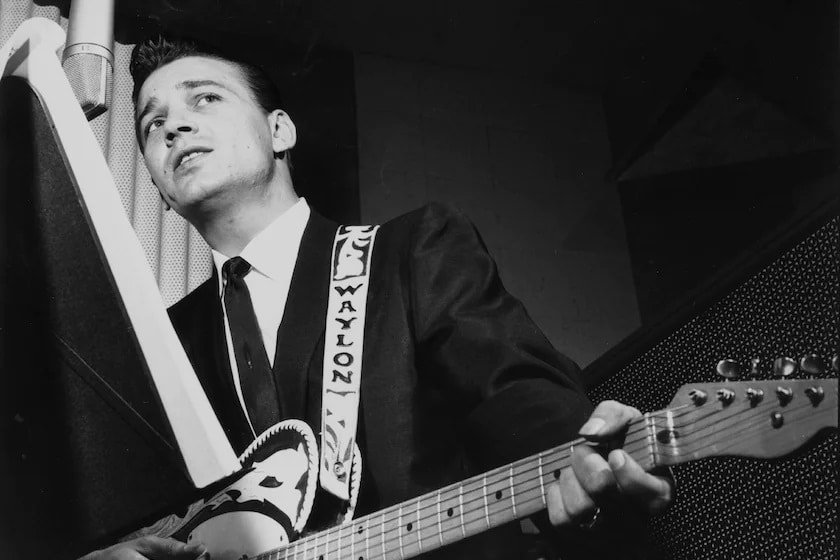Part profligate, part prodigal son, Waylon Jennings was part of the corrective collective– christened the “Outlaws” by either Hazel Smith or Dave Hickey– that repudiated the gloss, sentimentality, and industry stranglehold of the Nashville Sound in favor of the raw, candid, and plain-spoken. Frustrated by major label indifference, Jennings– alongside coconspirators Willie Nelson, Billy Joe Shaver, Kris Kristofferson, and with some behind-the-scenes assistance from wonder-manager Neil Reshen– negotiated a new contract with RCA that guaranteed him artistic autonomy, meaning he was free to work and record with artists outside Music Row’s inner circle. The near-savage Lonesome, On’ry & Mean (1973) was the first album Jennings recorded free of his label’s– and Nashville’s– constraints, but it was its follow-up, Honky Tonk Heroes, released only four months later, that turned a bubbling-under subculture into a way of life for audiences that comprised rednecks, hippies, cowboys, and rock n’ rollers, all hooked on the hardcore. The Shaver-penned title track was a manifesto for reactionaries in waiting and a prologue for a movement that continues to beget new generations of iconoclasts.
Yet the above narrative– the mythology that Jennings arrived from parts unknown to reclaim country music for the common listener– is an exercise in erasure, one that ignores that he was a man with a history, with something like 19 full-lengths to his name and several Top 10 singles. When considering Jennings and his fellow outlaws, it’s vital to remember they were in many ways rejecting the production and lack of independence, not the actual songs. A deep dive into Jennings’s pre-outlaw years– bookending with Folk-Country (1966) and Ladies Love Outlaws (1972)– reveals a wealth of criminally ignored cuts. To honor the anniversary of his 2002 passing, here is a pre-outlaw six-pack.
1. “Sick and Tired” (Singer of Sad Songs, 1970)
Recalling Jennings’s time with Buddy Holly, this I-IV-V mover channels Larry William’s “Slow Down” and whatever hellfire Jerry Lee Lewis is dealing.
2. “Julie” (Hangin’ On, 1968)
A man marries a gorgeous, yet evil-faced 17-year-old gal who wastes no time in indulging in parties, liquor, and tight clothes, finally rendering her husband baffled, broken, and committed. Rubber room material, later covered by Porter Wagoner, natch.
3. “(That’s What You Get) For Lovin’ Me” (Leavin’ Town, 1966)
Penned by Gordon Lightfoot, this unrepentant slice of victim-blaming foreshadows the desperado heartbreakers who rely on good-hearted women.
4. “Don’t Play the Game” (Waylon, 1970)
Opening with something resembling a sitar, this slow churn is a hard pill for perpetually forlorn, unrequited love types: “But love one-sided, it’s just yourself to blame/And if you don’t like the rules, don’t play the game.”
5. “Six Strings Aways” (Jewels, 1968)
Here, our new money speaker has a “Royce Rolls”, fancy clothes, a suspicious mind, and… fuzz guitar.
6. “Such a Waste of Love” (Only the Greatest, 1968)
From the album that opens with the declarative “Only Daddy That’ll Walk the Line,” this curiosity showcases Jennings’s baritone approaching melodrama and an outro than echoes The Beach Boys’ Pet Sounds.
Charlie Farmer is a Georgia writer and professor who loves his wife, his daughters, his students, his cats, his books, his LPs, and everything else one should love in life.
